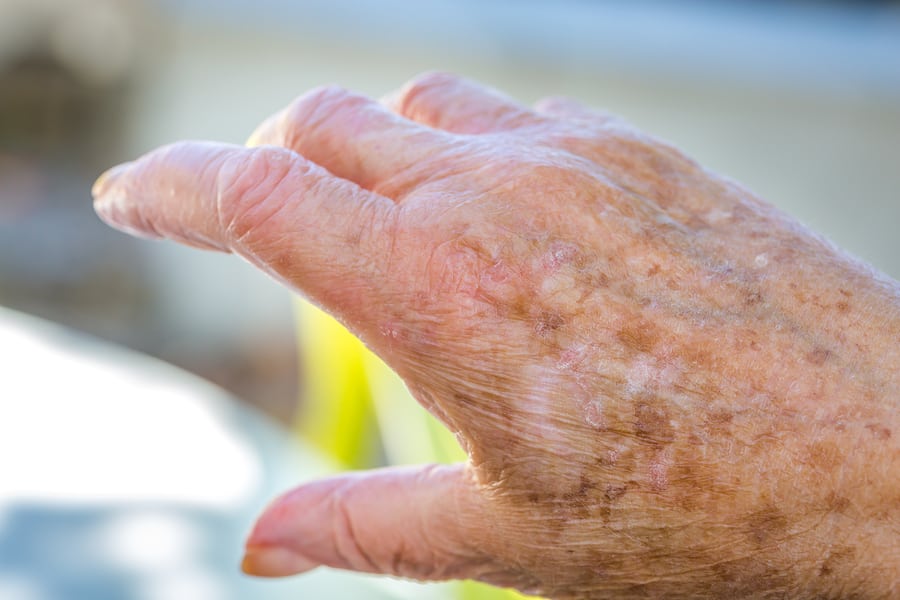How Do I Care for My Elderly Relative’s Eczema?
If you’ve noticed excessive dry skin on your aging relative’s face, arms, chest or back, it’s possible they’ve developed eczema. Eczema is just one of several skin conditions that are common in elderly adults and if left untreated, can be irritating, painful and even develop into ulcers.

Home Health Care in Clark County VA: Elderly Eczema
Eczema is Common in Seniors
Your elderly loved one’s skin changes with age, losing the ability to retain fluids and fatty tissue that keep it supple and soft. Eczema results in dry patches that are scaly and discolored. It generally appears on the face, hands, chest, and back, but can develop just about anywhere. For many seniors, eczema is itchy and uncomfortable. It is made worse by a number of different factors, such as environmental conditions and poor skin care.
The good news is that with a doctor’s care and a proper skin care regimen, your elderly relative can keep eczema under control, minimize symptoms and avoid discomfort. There are many different types of eczema, and a proper diagnosis will help a doctor find the best treatment. Family caregivers and home care providers should always set up a doctor’s appointment for the elderly adult if they notice any unusual skin conditions. Early treatment can make a real difference in the severity of eczema.
Treating and Preventing Eczema in Seniors
Eczema should be treated by a doctor, who can prescribe a steroid cream that can keep eczema from spreading. In extreme cases, there are also oral medications that may help with the skin condition. Family caregivers and home care providers should apply the medicine just as the doctor recommends, providing the senior with maximum relief.
There are also plenty of things that seniors can avoid that minimize the symptoms of this common skin condition. Extreme temperatures and dry air can trigger eczema, so many home care providers set up humidifiers for comfort. Hot showers and baths trigger eczema flare-ups, so seniors should instead use lukewarm water.
Seniors with eczema can also have flare-ups if they use products with heavy perfume or dye such as soap, lotion, fabric softener, makeup or other bath products.
Excessive sweating can also make eczema worse. Certain foods may trigger an allergic reaction that worsens eczema. It’s important for everyone to pay attention to the conditions that make the eczema flare up so they can help the aging adult avoid those triggers.
Eczema is an uncomfortable and unsightly skin condition that can make an elderly relative’s life quite uncomfortable. However, with proper treatment and a good skin care routine, they can minimize the appearance and the symptoms. Family caregivers can get additional help from a home care provider in caring for their aging relative’s eczema, such as bathing, putting on medicated cream, applying lotion, and monitoring the skin condition.
If you or an aging loved-one are considering hiring Home Health Care in Clark County, VA, please contact the caring staff at LivinRite Home Care. Call Us Today at (703) 634-9991.
- Sustainable Family Caregiving with the Help of Senior Home Care - November 12, 2024
- How Skilled Nursing Helps Improve Communication - October 25, 2024
- Digestive Issues in Seniors and How to Minimize Their Effects - October 10, 2024
